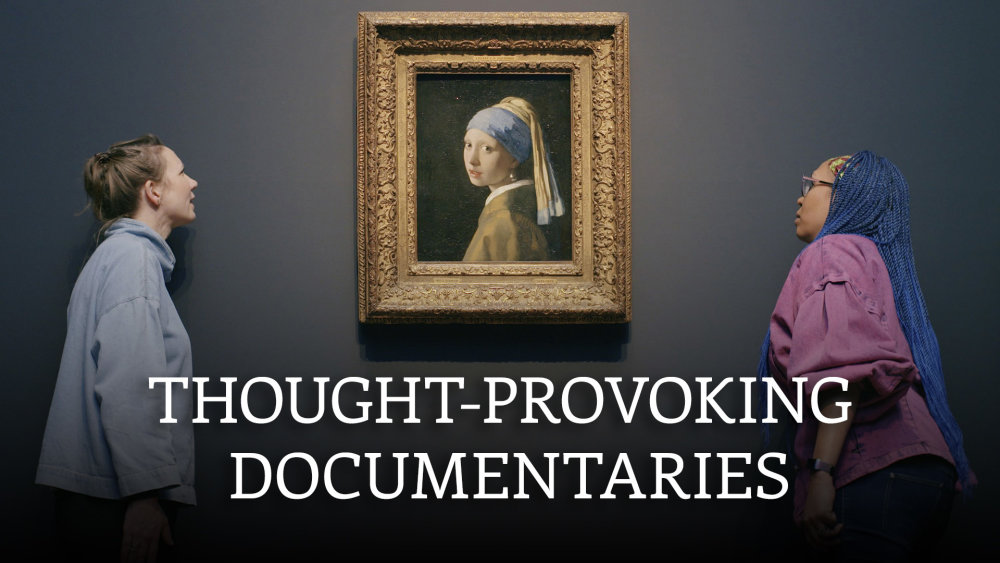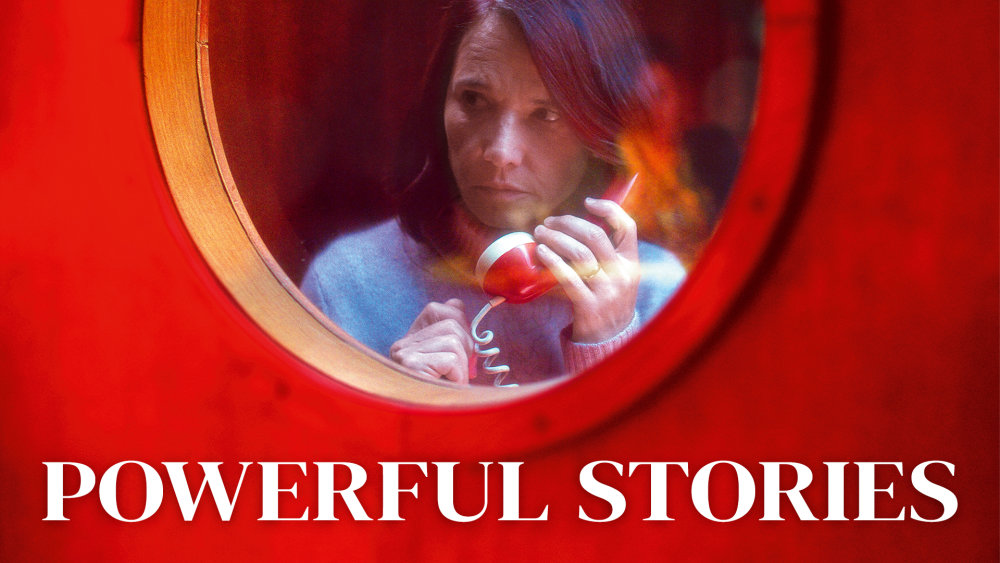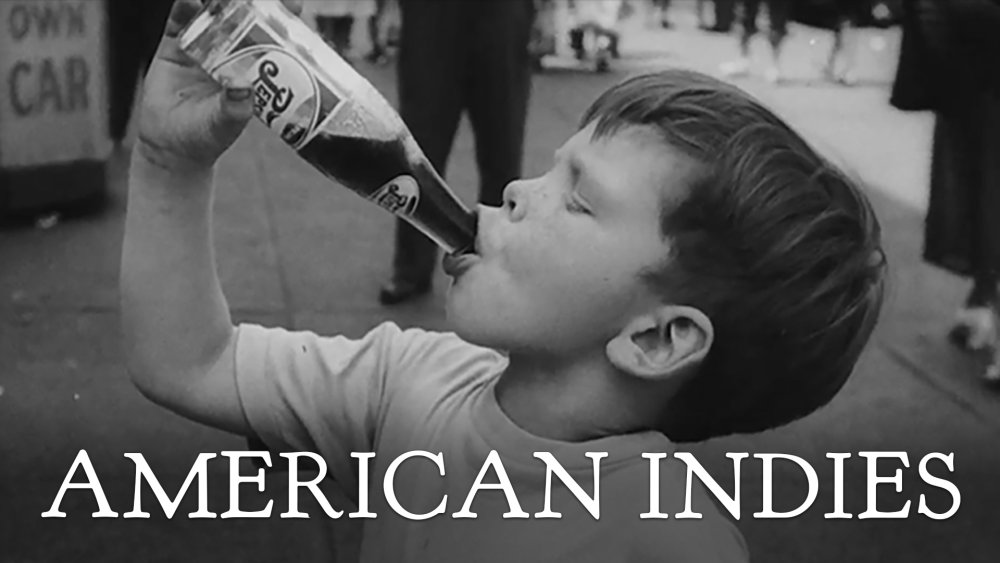
Watch: Johan Grimonprez’s 'Soundtrack to a Coup d’Etat' Is Part Visual Essay, Part Spy Thriller, and 100% Essential Viewing

Scroll down to watch our interview with director Johan Grimonprez.
What do Congo’s independence, Louis Armstrong, Nikita Khrushchev, and iPhones have in common? These are a few of the many strands that filmmaker Johan Grimonprez masterfully weaves together to construct a web that’s may seem complex at surface level, but becomes painfully transparent once those strands start to unravel. At the center of the web is the CIA-led assassination of Patrice Lumumba, the first prime minister of the Democratic Republic of Congo. But make no mistake: Soundtrack to a Coup d’Etat is as far from a straightforward historical documentary as one can get.
Nominated for the Academy Award® for Best Documentary Feature and one of the most awarded nonfiction films of 2024, Soundtrack to a Coup d'Etat is propelled by a diverse, well, soundtrack of jazz and Rumba that not only lends the story a frenetic energy and heightens the suspense, but serves as a central character of its own. The film opens and ends with musicians Abbey Lincoln and Max Roach crashing the UN Security Council to protest Lumumba’s assassination, immediately establishing the central role jazz played in this chapter of history. Grimonprez describes his film as “an academic PDF disguised as a music video.”
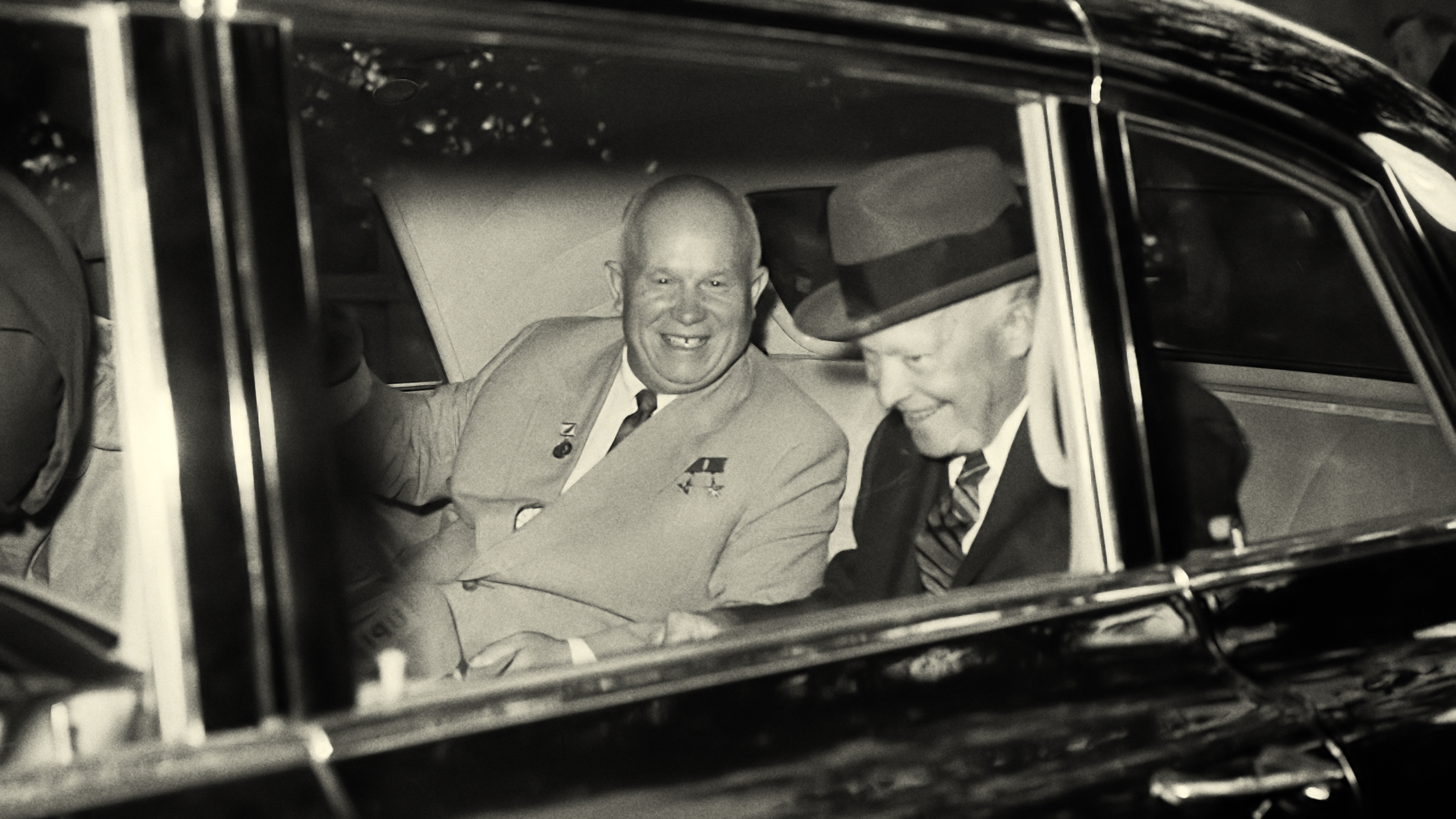
Let’s back up a bit. What exactly was the genesis of this film? It all began with a banging of the shoe. “I knew about Nikita Kruschev’s slamming of the shoe at the 15th General Assembly, which was a pivotal moment in Cold War history, but I never knew that actually had to do with the history of my country…Belgium.” As Grimonprez dug deeper into the context behind the shoe slam, he learned that it was in protest of Lumumba’s overthrow and Belgium’s continued colonization of Congo post-independence, a chapter that Grimonprez calls a “dark page” in Belgium’s history.
At the core of the international interest in Congo is uranium, a highly sought-after mineral used in everything from nuclear weapons to modern-day tech. Grimonprez establishes the mining of uranium as the bottom-line reason Congo’s dream of independence in 1960 never stood a chance, but he then boldly inserts a Tesla commercial and an iPhone commercial amid the steady stream of archival footage, making it resoundingly clear that the history lesson we’re watching is not relegated to the past. Uranium is just as much a hot commodity today as it was during the height of the Cold War, and it continues to define the world’s socioeconomic and sociopolitical relationship with Africa. As Kwame Nkrumah, the first prime minister of Ghana, points out in the film: “Africa is far from being poor. It’s Africans who are poor.”
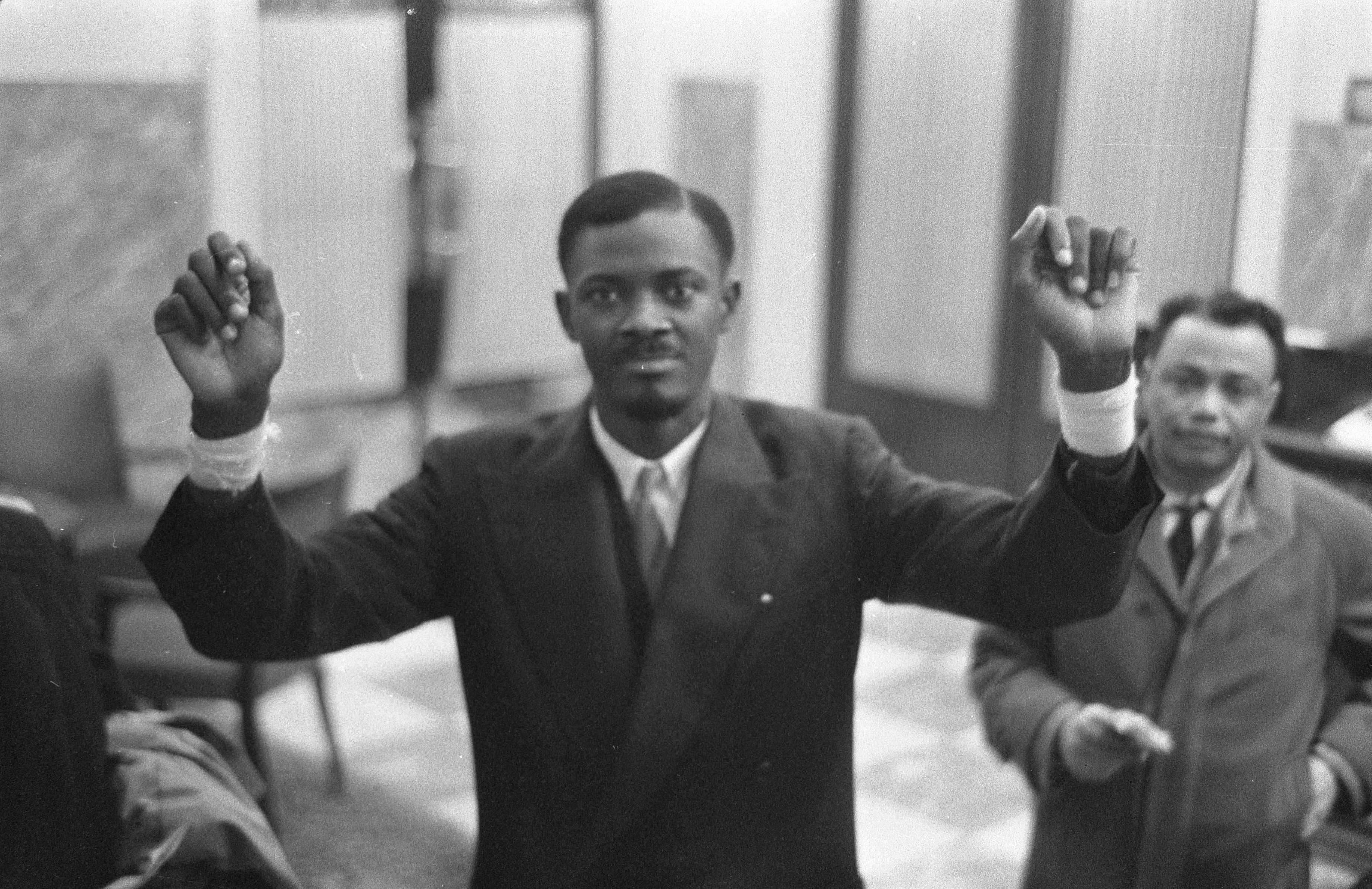
So when someone like Patrice Lumumba dares to fight for Congo independence, political machinations begin to spin in the West. Belgium, who had ruled Congo for 75 years, wanted to protect its mining interests, while the US was unnerved by Lumumba’s appeal to the Soviets for military aid. Hearing from figures like the former director of the CIA Allen Dulles, Lumumba advisor Andrée Blouin, and even trained mercenaries, the film plays out like a spy thriller in how it pieces together Lumumba’s CIA-backed assassination seven months after Congo gained “independence” from Belgium on June 30, 1960. That same year the State Department sent musicians including Louis Armstrong, Dizzy Gillespie, and Nina Simone to Congo as “jazz ambassadors” in the name of diplomacy, but in reality they were just smokescreens to deflect attention from the plot.
Grimonprez is careful not to tell the story of the coup against Lumumba in a vacuum. It is inextricably linked to race relations in America and the ongoing ideological battles of the Cold War. Featuring footage and excerpts from Malcolm X, the film emphasizes the US’s hypocrisy in sending Black jazz musicians abroad to spread the good word of democracy when back home Black Americans were being lynched and denied basic human rights. Another figure who loudly criticizes this hypocrisy is Khrushchev, who in the film comes off so surprisingly reasonable that we momentarily forget his ruthless pursuit of defeating the West.
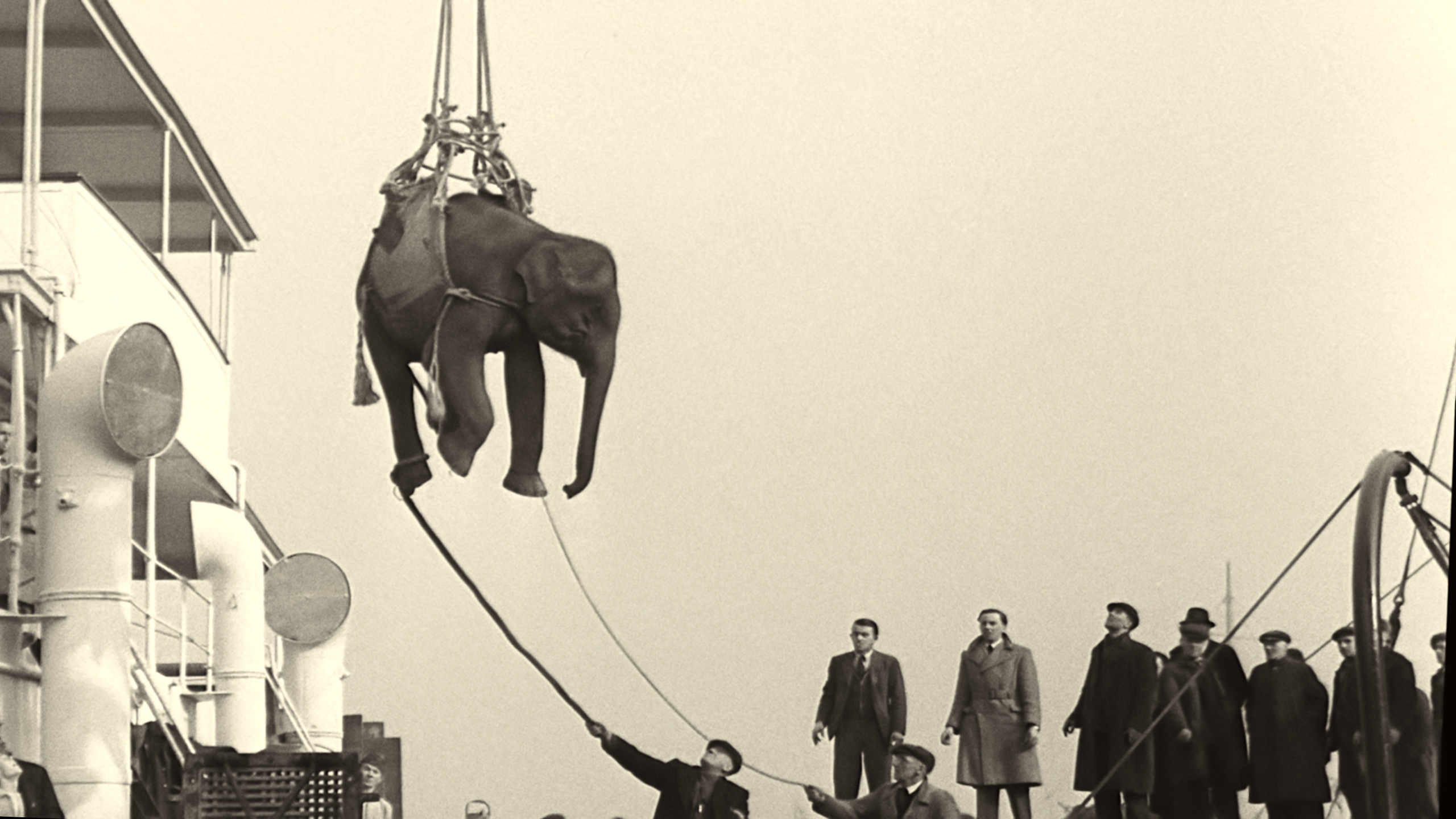
Now that we’ve come full circle, let’s go back to the kinetic heartbeat of the story: the music. To say the film is jam-packed with music is an understatement. Soundtrack to a Coup d’Etat brings together the best of the best in jazz and Rumba—including Louis Armstrong, Nina Simone, John Coltrane, Dizzy Gillespie, Abbey Lincoln, Max Roach, Duke Ellington, Melba Liston, Grand Kallé, Miriam Makeba, and more—because this is just as much their story. Abbey Lincoln and Max Roach opening and closing the film both sets the stage and plays a final note to show that “music is really leading the way in this narrative,” as Grimpnprez puts it.
If there is one takeaway from the film, it’s that there is power in music. One quote in the film stands out in particular—Malcolm X says: “I think music can create the initial change in the thinking of the people.” With his film, Grimonprez provides an entire soundtrack.
Watch our entire interview with Johan Grimonprez about Soundtrack to a Coup d’Etat below, stream the film here on Kino Film Collection, and check out the soundtrack to Soundtrack on Spotify.




